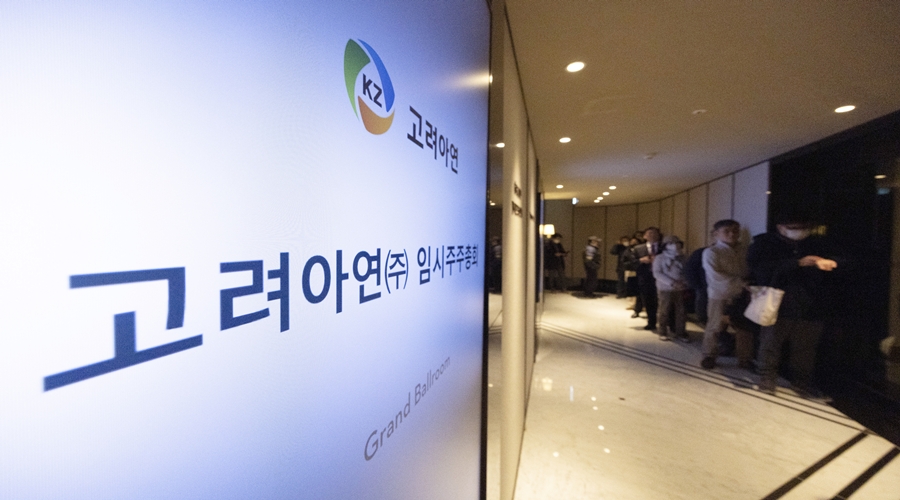
The conflict over the management rights of Korea Zinc between the Youngpoong Group and the private equity firm MBK Partners, alongside Chairman Choi Yun-beom’s camp, has intensified once again. The upcoming regular shareholder meeting is expected to see a direct confrontation between the two sides due to a recent court decision.
The court ruled that Korea Zinc's actions to limit the voting rights of its largest shareholder, Youngpoong, through a circular shareholding structure involving overseas subsidiaries, were illegal. As a result, the voting rights will now be determined based on the original shareholding ratios, making a showdown between the two sides inevitable at the upcoming general meeting.
Currently, the shareholding structure of Korea Zinc shows that the MBK-Youngpoong alliance holds 40.97% of the shares, while Chairman Choi’s camp holds 34.35%, giving the MBK alliance a slight advantage.
The court also upheld the validity of the cumulative voting system, which suggests that Chairman Choi’s camp is unlikely to lose management control immediately. However, analysts believe that, in the long term, the MBK alliance has a high chance of securing a majority on the board through the shareholder meeting.
The MBK alliance is expected to recommend several new board members at the upcoming meeting as part of a strategy to further narrow the gap with Chairman Choi’s camp. In response, Chairman Choi’s camp is intensifying public relations efforts and legal actions, criticizing MBK’s management style and intentions.
Meanwhile, Youngpoong has disclosed that it transferred 5.26 million shares (25.4%) of Korea Zinc to the newly established limited company YPC as an in-kind contribution to prevent the possibility of Korea Zinc using domestic companies to restructure the circular shareholding structure.
Korea Zinc strongly opposed this, claiming that transferring key assets without a shareholder meeting decision was a clear violation of the law. However, Youngpoong rejected this, dismissing it as an arbitrary interpretation of the commercial law.
Amid these developments, negative public sentiment surrounding MBK Partners’ private equity management style is spreading, and there is growing speculation about potential government intervention. The recent 'Homeplus incident' has intensified criticism of MBK, and as Korea Zinc is a company that holds national core technologies, there is increasing attention on the possibility of regulatory oversight from authorities.
If the MBK alliance secures management control, concerns are being raised that its strategy of maximizing shareholder profits could negatively impact Korea Zinc's long-term growth.
Korea Zinc has warned that MBK’s focus on short-term profits could significantly undermine the company's competitiveness, and this could lead to unfavorable outcomes for Youngpoong shareholders as well.
https://www.sankyungtoday.com/news/articleView.html?idxno=51315
MBK-Youngpoong Alliance vs. Chairman Choi: Showdown at Korea Zinc's March Shareholder Meeting
The conflict over the management rights of Korea Zinc between the Youngpoong Group and the private equity firm MBK Partners, alongside Chairman Choi Yun-beom’s
www.sankyungtoday.com



